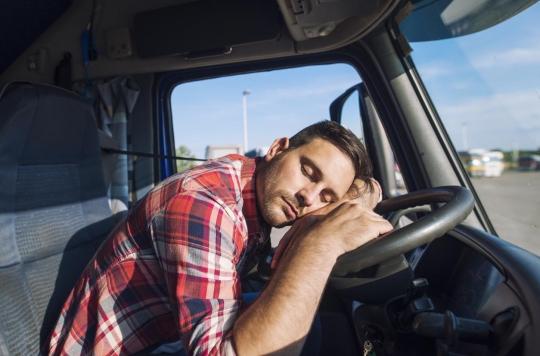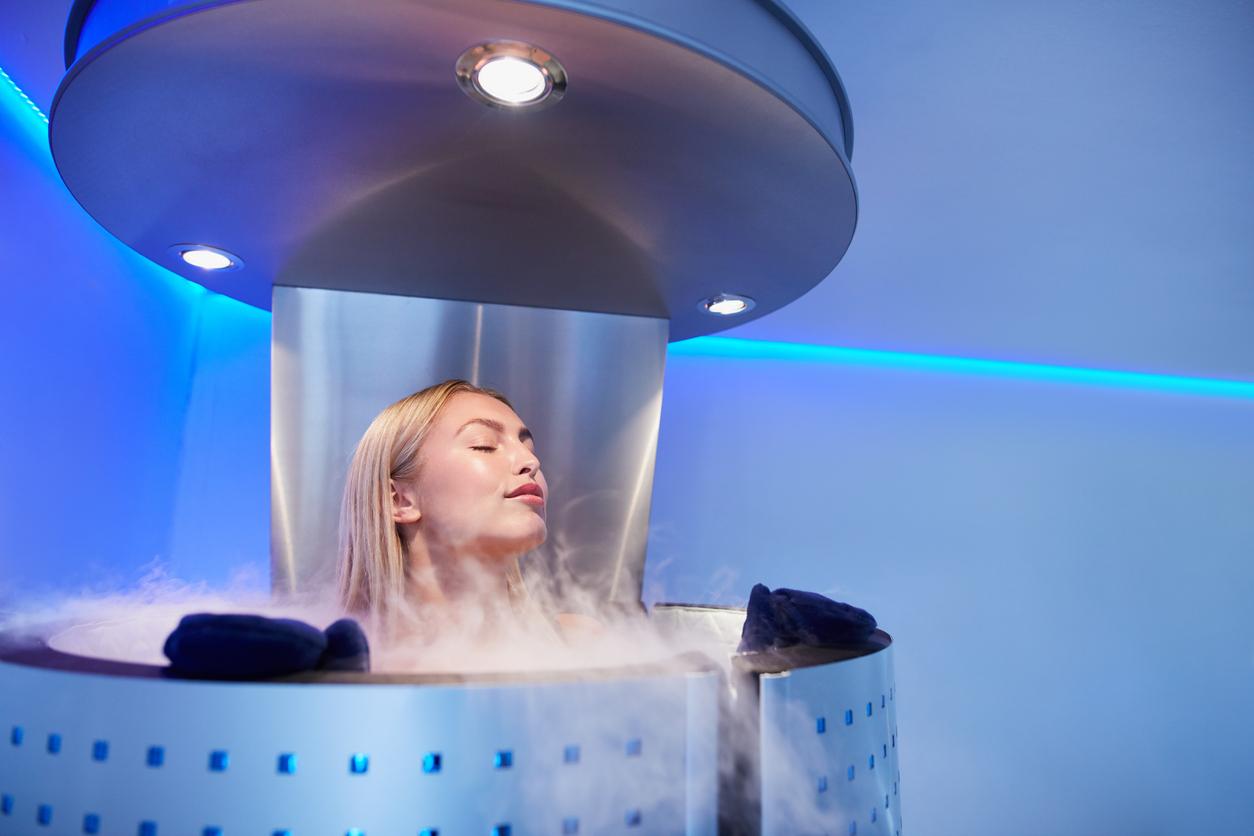According to a new Italian study, many truck drivers suffer from obstructive sleep apnea without knowing it, which can be very dangerous. The association that conducted the study calls for road transport companies to submit their drivers to a screening test.

Obstructive sleep apnea (OSA), which affects 6 to 17% of the population, consists of involuntary cessation of breathing during the night because the air no longer passes normally through the lungs. These pauses last more than 10 seconds (they can reach up to 30 seconds) and occur several times a night with varying frequency. In severe cases, they may occur up to more than thirty times per hour. They can then result in fatigue on waking, headaches and drowsiness during the day. Ultimately, this affliction can lead to cardiovascular disease, diabetes, depression or complications during operations under general anesthesia. In addition, studies have shown that a person deprived of sleep because of this disease has 12 times more risk of being the victim of a road accident, lack of vigilance. This is why the European Union has put in place a guideline to limit the risk of accidents related to OSA: drivers suffering from this disease in moderate or severe form must consult a doctor before their license is issued or renewed. They can also be advised not to drive until the diagnosis has been confirmed and medical measures have been taken.
However, at present, many people are unaware of suffering from this disease (in France, according to a study, six out of ten sufferers do not seek treatment) and this is particularly the case for many truck drivers. According to an Italian survey of 905 truckers and presented this Monday, September 30 at the International Congress of the European Respiratory Society, half of them would suffer from at least one sleep-related respiratory problem that could potentially put them to sleep while driving. Many of them were also unaware of it before the study. As a result, the Italian Association of Sleep Apnea Patients is now calling for road hauliers to screen their drivers for possible sleep-related breathing problems.
The association came to these conclusions after carrying out a survey on the health of drivers at the request of Federtrasporti, an Italian truck drivers’ cooperative. For 44 days, volunteer expert patients, doctors and nurses followed drivers in transport companies belonging to Federtrasporti. They measured their height, weight, waist circumference and learned about their medical conditions as well as lifestyle factors such as cigarette or drug use. They also asked them about the duration of their journeys, the distances covered, the type of goods transported and the route taken. And of course they asked them about their sleep. Among them: “Do you snore?” , “Are you dissatisfied with the way you slept?”, “Do you often wake up with an urgent need to urinate?” or “Do you frequently feel the desire or need to sleep during the day (except after lunch)?”.
On the “moral and civic” responsibility of companies
Results: Nearly 10% of drivers (90) said their partner had noticed that they sometimes stopped breathing while sleeping. Furthermore, 55% used to snore (508) and 43% (387) answered “yes” to at least two of the questions on sleep and are therefore at risk of OSA. Moreover, 17% of those questioned suffered from hypertension and 6% from diabetes. And of the 508 habitual snorers, 15% (78 drivers) also had OSA, the researchers noted. Thus, the proportion of drivers suffering from this disorder would be much higher than the 10% aware of their condition. Another interesting observation: 35% of habitual snorers say they are dissatisfied with their sleep and 21% complain of sleepiness during the day. Finally, the researchers also found that the number of snorers increased with age.
“This observational study highlighted the high prevalence of obstructive sleep apnea among truck drivers, which is higher than the prevalence in the general population. This is due to a lifestyle that requires drivers to sitting for several hours a day, with little physical activity and a poor diet, which increases the risk of excessive daytime sleepiness and unexpected drowsiness at the wheel”, explains Mr. Luca Roberti, president of the association. Indeed, being overweight is one of the risk factors for developing OSA.
“Considering that drivers are responsible for transport vehicles weighing several tonnes, companies have a great moral and civic responsibility to ensure that their employees can drive safely and are not at risk of suddenly falling asleep at the wheel. This would also be in line with European Union legislation that regulates the renewal of driving licenses for people with obstructive sleep apnea,” Roberti says. And to conclude: “Transport companies should require their drivers to submit to examinations to diagnose any sleep-related respiratory problems, and they and their drivers should pay particular attention to the diet of the latter”.
Truckers ‘may have higher prevalence of obstructive sleep apnea’
Now the researchers want to study the respiratory rate, blood oxygen levels, snoring and nighttime position of 5% of the 905 drivers in the first study. To do this, they attached devices to them. The results will be used to verify the accuracy of those obtained from the questionnaires.
“This study provides interesting data on sleep-disordered breathing among truck drivers and suggests that as a group they may have a higher prevalence of obstructive sleep apnea than the general population. However, we can treat and improve OSA; measures such as quitting smoking, losing weight and being more physically active can help improve the condition, which may help reduce the risk of traffic accidents due to driver drowsiness (… ) For more severe cases of OSA, effective treatments such as continuous positive airway pressure can be provided.This helps people with OSA breathe more easily at night, which can improve the quality of life of patients. patients and would also reduce drowsiness at the wheel”, comments Professor Anita Simonds, consultant in respiratory and sleep medicine at Royal Brompton and Ha refield NHS Foundation Trust (United Kingdom) and vice-president of the European Respiratory Society, external to the study, in reaction to the latter.
In France, one in three fatal road accidents is due to drowsiness on the motorways, according to an IFOP study published last summer. This makes it the first cause of death on these axes (26%) during the five years preceding the report. Every year in France, 90,000 accidents are due to drowsiness.

.

















